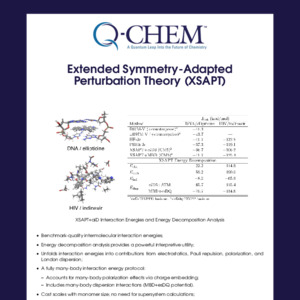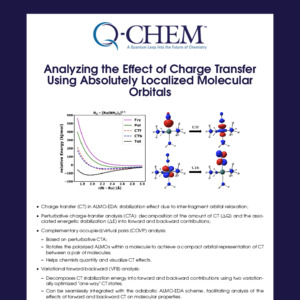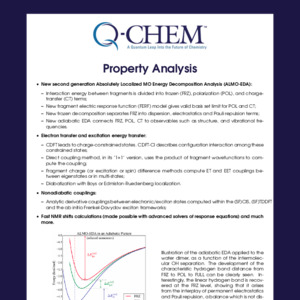Q-Chem Webinar 38
XSAPT: Accurate and Efficient Method for Noncovalent Interactions

Kevin Carter-Fenk is a graduate student in Professor John Herbert’s research group at The Ohio State University.
Kevin’s thesis project focuses on the development of scalable electronic structure theory methods for accurate and efficient calculation of properties in large systems. He is a recipient of an NSF REU fellowship (2015), the American Chemical Society Undergraduate Award in Inorganic Chemistry (2015), and most recently a prestigious Department of Energy Office of Science Graduate Research fellowship (2018).
Abstract
In this webinar, I discuss the extended symmetry-adapted perturbation theory (XSAPT) method, a fragment-based approach for calculating interaction energies in large systems. The XSAPT method scales as O(n3), i.e. the cost increases cubically with the number of basis functions on each fragment (n3), as opposed to scaling with some power of N, the number of basis functions in the entire system (e.g. canonical DFT, MP2, etc.). Recent augmentation of XSAPT with a many-body dispersion potential yields interaction energies in large systems that are generally better than those of DFT-D methods, but at significantly reduced cost. We have applied XSAPT to systems of 10,000 basis functions, where even DFT methods can be intractable. In addition to total energies, XSAPT naturally decomposes the interaction energy into component parts, giving insight into the contributions of electrostatics, exchange (Pauli) repulsion, polarization, and dispersion to the interaction. The theory will be described as well as job control for XSAPT, and I will provide examples on interpretation of the output.





